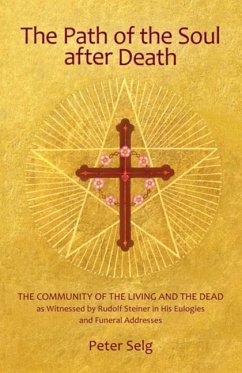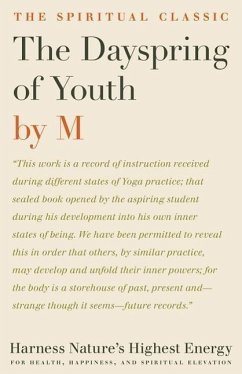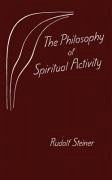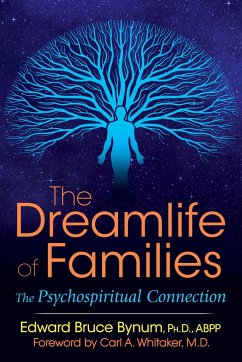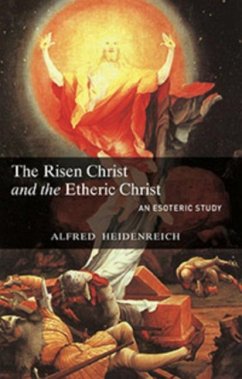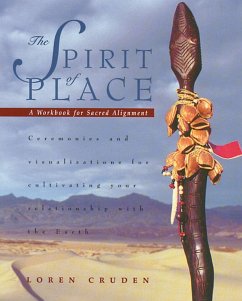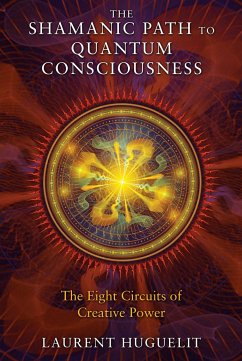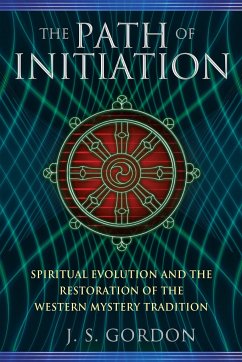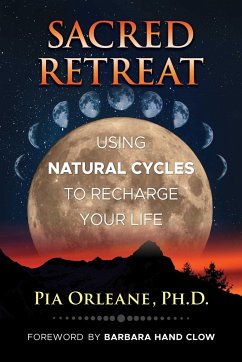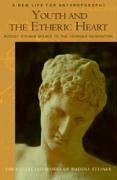
Youth and the Etheric Heart
Rudolf Steiner Speaks to the Younger Generation (Cw 217a)
Übersetzer: Creeger, Catherine E
Versandkostenfrei!
Versandfertig in über 4 Wochen
18,99 €
inkl. MwSt.

PAYBACK Punkte
9 °P sammeln!
Addresses, Essays, Discussions, and Reports, 1920 -1924 (CW 217a) "Young people today turn away from older people not because the latter have grown old but because they have remained young--that is, because they don't understand how to grow old in the right way. Older people today lack this self-knowledge. Growing old in the right way means allowing the spirit to unfold in our souls as befits an aging body. When we do this, we show young people not only what time has done to the body, but also what eternity reveals through the spirit. Young people will find their way to older people who seriou...
Addresses, Essays, Discussions, and Reports, 1920 -1924 (CW 217a) "Young people today turn away from older people not because the latter have grown old but because they have remained young--that is, because they don't understand how to grow old in the right way. Older people today lack this self-knowledge. Growing old in the right way means allowing the spirit to unfold in our souls as befits an aging body. When we do this, we show young people not only what time has done to the body, but also what eternity reveals through the spirit. Young people will find their way to older people who seriously attempt to experience spirit. To say that we must act young when we are with young people is just an empty phrase. As older people, we must understand--and demonstrate to young people--how to be old in the right way." --Rudolf Steiner (Mar. 9, 1924) Youth and the Etheric Heart, which comes to twenty-first-century readers in the somewhat deceptive wrapping of a historical document of Rudolf Stiener's addresses to young people during 1920 to 1924, is (at least for those concerned with the future of Anthroposophy or with the future of spiritual life in general) one of the most extraordinary and prophetic volumes in the collected works. This book is intended by its editors to be supplementary to the central turning point of the movement, the 1922 "Pedagogical Youth Course," published as Becoming the Archangel Michael's Companions.Together, they present Steiner's vision for Anthroposophy as he hoped it would permeate culture through young people able to take it up as a spiritual, intellectual, and socially transforming path. The task, which underlies the whole volume and to which we, too, are called by service to the Archangel Michael, is to open to the etheric heart in humanity. This becomes clear in Rudolf Steiner's final address to the young people attending a teachers' conference in Arnheim on July 20, 1924: "What is needed is not thinking about what should happen. People should feel that the spirit outside of us speaks in the flames of nature. The sunrise has changed. But also our heart has changed; we no longer bear the same heart in our chest. Our physical heart has grown harder, and our etheric heart more mobile. We must find access to our suprasensory hearts. This is the way we must understand spiritual science." In this respect, young people have hearts ideally suited to feeling when something is right. It simply requires courage to really think it. It is in the light of "our suprasensory heart" that we should approach this volume, and indeed Anthroposophy as a whole. Youth and the Etheric Heart is a great companion volume to Becoming the Archangel Michael's Companions (CW> 217). During the early 1920s, following the disaster of World War I, the youth of Europe faced many hardships and questions about their destiny in the world. The situation today is certainly different, but the questions are no less urgent. This volume is the first complete English translation from the German of 'Die Erkenntnis-Aufgabe der Jugend' (GA 217a).




